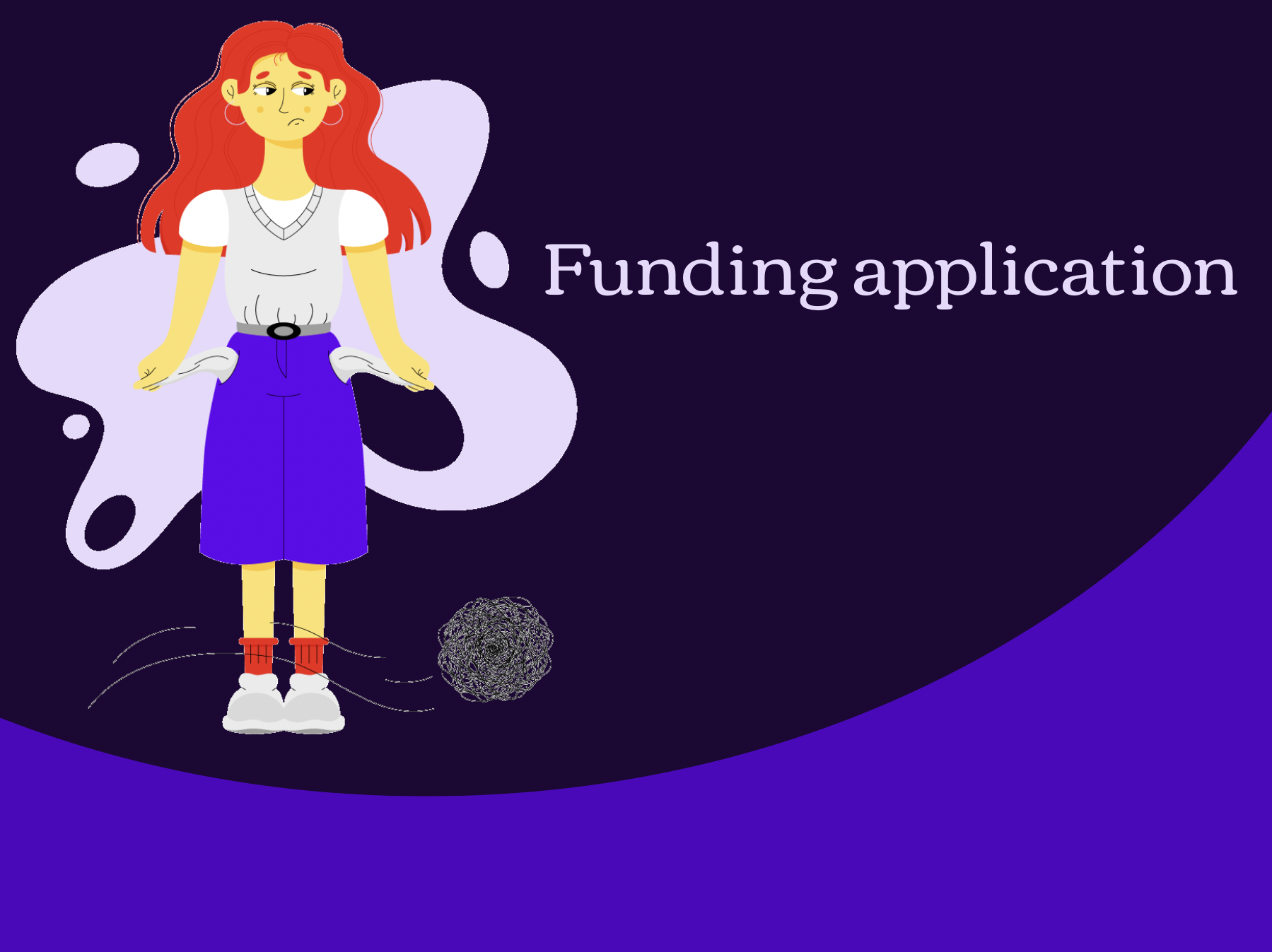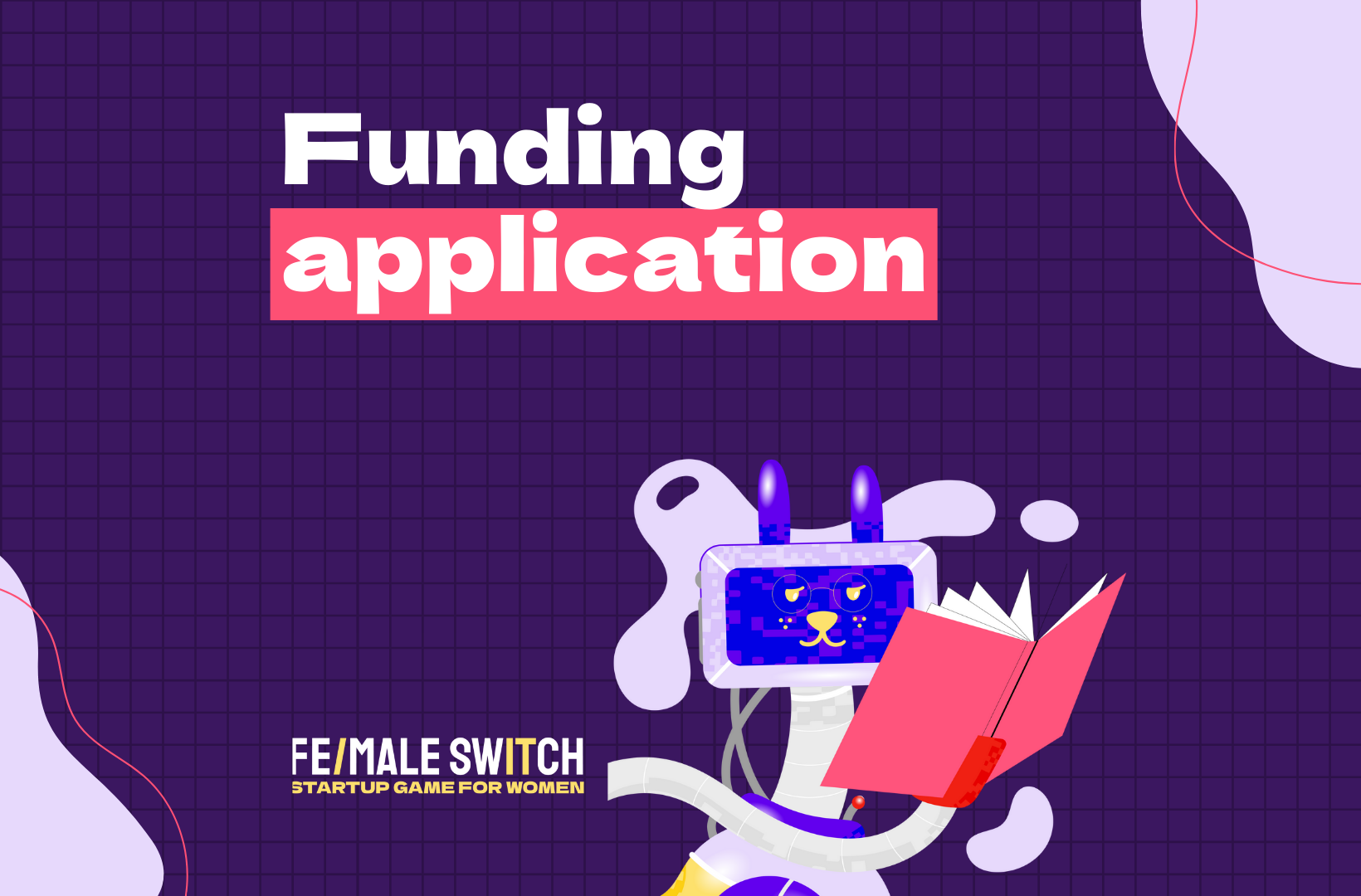Home / Playbook / EU grants: a guide on writing a funding application
Funding Applications Walk-through: A Guide To Writing Your EU Funding Application
Do you have an urge to become an entrepreneur? That's a great start! However, it's very important to follow the right process. First off, why don't you check your entrepreneurial potential to know what your strengths and weaknesses are? Analyse your entrepreneurial potential here. For everything else, there's Elona, the AI startup co-founder for you! As your AI co-founder, Elona delivers a powerful combination of expertise, support, and motivation to help you conquer the world of startups.
Grants are a great way of funding your startup without giving away equity. However, getting grant money can be challenging. There is not that much actionable information out there about the whole process. How do you successfully navigate the application process and land the funding you need? Read this guide to learn about funding applications for EU grants and find out which strategies are most effective for your project.

How to find suitable grants?
The first step towards finding a grant is to conduct a thorough research and assessment of what’s out there. Your research can help you find suitable grant opportunities that might otherwise have gone overlooked. It can also help you identify grant opportunities that are right for your specific project. You can conduct a grant assessment by hand (Hello, Google), or you can buy access to a curated and updatable database. From our experience, the latter is too expensive but it does save you plenty of time in the beginning. We chose to go our own way and over the years have collected quite a nice selection of national and European grant opportunities. We are currently turning our database into a curated product for startup founders like you. Express your interest here and make sure you get the product at a very low price.We have a completely FREE STARTUP SCHOOL and there's a new AI FOR STARTUPS MODULE run by AI. Sign up for the free startup school and get started immediately.
How to get started with requirements?
Once you have found a seemingly suitable call, it’s time to dive into reading a huge amount of pages (yep, 50-200 pages of a call description is a usual thing in EU grants, so get some popcorn). What exactly are you looking for? To ensure that your proposal is well-suited for a specific call, you’ll need to know several important things, starting with the exact topic of the call, the TRL (Technology Readiness Level) that your startup needs to be at at time of the application, if the call requires a consortium (a partnership with other companies or institutions), if the funding requires co-financing (meaning if you have to spend your company money on top of the received funding) and a lot of other things. Why is that important? You don’t want to spend a month on writing the application and then have it disqualified because of a technicality. Been there, done that: not recommended. After several years of writing grant applications, it takes us a few minutes to understand if a call is interesting or not, whereas in the very beginning of our journey it would take us day of frustrated reading of highly incomprehensible text in order to make any sense out of it. Would you like to have a checklist of all the important things that you need to find out before deciding if the call is right for you? You know the drill, let us know and we will make it happen.How to write an effective grant application?
Now that you’ve whitelisted a specific call, it’s time to write your grant application. There are many different ways to write an application, depending on the type of grant you’re submitting. However, the basic idea remains the same – you’re trying to convince the team of evaluators to fund your proposal. Writing these applications is not that much different from talking to other types of investors: they all want the same. With government funding, it’s even worse: they don’t like risk at all. Yet they love innovation. Yes, we know what you are thinking: how can one go without the other? Our advice: just accept this fact and don’t waste your energy on this. Instead, make sure you create a narrative around your startup that gives the evaluators a sense of security when they are reading your application. Bear in mind that most of the evaluators do not have any startup experience (funny, huh?), are middle aged and above, and, of course, are mostly male. So this is your audience: how do you convince them? Well, by showing them the money. And impact. And scalability. And defensibility. And the best team in the world. You get the idea.
How to answer the questions in the application?
While the application is a form, it shouldn’t be filled with excessive jargon or redundant information. You can write an effective grant application by following a few simple rules. Be Clear and Concise - The grant application shouldn’t be a long scientific paper, because in most cases the evaluators will have zero knowledge about your domain. Be Specific - Try to avoid vague language and use numbers whenever possible. Never use overly technical terms, but avoid using terms like “disrupt” and “change the world.” The grant application is meant to convince the evaluators that you know what you are doing but can also talk about it to laypeople. Be Selective - Try to focus on the relevant details. Avoid spanning the entire application with unnecessary information. Does a piece of information help you to convince the evaluator? If not, then drop it. Would you like to see an actual example of an application that we received funding for? Sign up and you will get it.Need help writing a funding application? Check out how we applied for a grant using OpenAI's GPT4 here.
How to record a video?
After you’ve written your grant application, you’re ready to record a video, if there’s such a requirement. We have noticed that there’s a switch from live interviews to pre-recorded video submission in many application procedures. A video is meant to give the evaluators an understanding of who you are as a person, your team and your business. A video does not have to be professionally made but it does have to give a good impression, the sound has to be good, and the video has to be accessible via a link. Usually you get no more than 3 minutes and are advised to cover certain topics. You don’t need any specific equipment, but certain things will make your life so much easier if you are to apply for grants on a regular basis. We teach our users how to record videos and edit them in tools like Canva, so that this process doesn’t take a lot of time. We can also share with you a few examples of the videos that we recorded so that you can get inspired (or not). Let us know!Prepare and attach all the required documents.
Once you’ve completed your grant application, it’s time to collect all the required documents. In most cases you will need to prove that you have a company that is registered in an EU country (Chamber of Commerce registration), that your company has enough money (Annual balance or any other financial documents), CVs of you and the team members, etc. You might get asked for a captable (a capitalization table that shows who owns how many shares in your company), a Business Plan Summary, a project roadmap, etc. For applications that require a consortium, extra documents might be required, for example an IP plan (a document that describes how Intellectual Property will be shared between the partners). Make sure that you already know what extra documents you need to attach before you decide to start the application process, otherwise you might underestimate the workload and will have to work nights not to miss the deadline (true story). In case AI is used, there’s an extra layer of documentation that needs to be submitted. You will need to do an ethics assessment and an explanation on how the tech that you are creating is going to follow the ethical guide lines.Submit and wait
Before you submit your grant application, you should proof read it. You can do this by double-checking everything yourself but it is so much better if a trusted friend or colleague help you check if your application makes sense to someone who didn’t write it. While you can submit your grant application any time before the deadline, it’s best to submit it a few days earlier in case something goes wrong and you miss the deadline because of a technical error. Once you’ve submitted your grant application, it’s time to wait. It can take a while to get the results, so don’t hold your breath. Don’t just sit and wait for the result, though. Continue business as usual, because there’s a big chance that you won’t get funded. Competition is fierce and if it’s your first time, you will probably not be as good as experiences applicants. We fill in a lot of applications and get approximately 25% of them awarded. It’s a great result, but it is extremely time consuming. One thing that we do is always read the evaluation report and see what we can do to make the next application better. There were times when we received very bad evaluation reports (in the sense that they contained a lot of typos and grammatical errors) or even the wrong reports (a report for a different team has been sent to us more than once). In most cases, however, we gain some insights from the evaluators, but the most important thing that we learned is how badly the process of grant applications is organized. We are using our experience for building a startup evaluation tool that will be used in the startup game for a transparent and data-driven process of application and evaluation.Are you interested in incubators and funding in the Netherlands or Malta? Do you want to relocate your startup to Europe or are looking to establish a company here and get funded? Check out our FREE module about Startups in Malta and the Netherlands where you can learn about setting up a company and getting funded. Sign up for the free startup school and navigate to "Startups in Malta" module by typing "Malta" in the search or "Startups in the Netherlands" module by typing "Netherlands" in the search.
Thanks for reading and if you feel like you need a more in-depth description of the process or individual help with a specific application, reach out to us and we will do what we can.
Don't miss new articles. Next time we will take one application and look at all the questions in detail.
We have a completely FREE STARTUP SCHOOL where you can learn about all things related to founding a startup. Sign up for the free startup school and get started immediately.
Do you want to test your startup journey without risking to fail in real life and learn essential startup knowledge, apply for Fe/male Switch startup game for women and build your virtual startup, play, learn and fail in the game to make it right in the reality.
Ready to embark on a thrilling entrepreneurial adventure, but feeling a tad overwhelmed with everything that goes into building a successful startup? Fear not, for Elona Musk, is here to introduce you to some fantastic AI tools that'll help you conquer the startup world 🚀 Think of them as your personal army of AI minions, ready to help you at every step of your journey.
1. **Annie** - The Ultimate Product Description Tool 📝
Why struggle to find the right words for your product descriptions when Annie can magically conjure up stunning descriptions that will make your customers want to buy your product immediately? She's fast, clever, and the ultimate solution to all your product description needs! Give it a try today.
2. **Aiden** - Your Creative Startup Naming Guru 💡
Say goodbye to boring and uninspired startup names! With Aiden, you can generate the most unique and catchy names in a fraction of the time it would take you to brainstorm them. Impress your friends and colleagues with your clever choice of name, and let Aiden do the heavy lifting for you.
3. **Little Sister** - The Idea Generating Genius 🧠
Welcome Little Sister into your life, and say goodbye to staring at a blank page! As your ultimate idea-generating machine, Little Sister will revolutionize the way you come up with startup ideas, thereby making your entrepreneurial journey more exciting and fun.
4. **Boris** - The Pixel-Pushing Logo Creator 🎨
Bid farewell to mediocre logos! With Boris, our AI-based logo tool, you don't have to worry about design skills anymore. Provide well-crafted prompts and let Boris create the perfect-ish logo you've always dreamed of. Finish up the design by giving it a human touch on Canva (and remove the weird-looking text that AI loves to generate), blending the best of artificial intelligence and human creativity!
5. **Elona** - Your Startup Expert Consultant 🧐
Got questions related to startups and entrepreneurship? Look no further! As an AI startup expert tool, Elona Musk, offers you answers and valuable advice related to anything and everything regarding startups, ensuring you have a smooth sail to the finish line. Remember, happy entrepreneurship and zero code is her mantra!
So, fellow startup soldiers, don't hold back any longer—unleash the power of these AI tools TODAY and embark on your entrepreneurial journey with confidence! Happy startup-ing, and may the AI be with you! ✨
Remember: AI tools never argue and never ask for equity. Go ahead, give them a try, and see how they enrich your startup journey! 🌟
Home / Playbook / EU grants: a guide on writing a funding application


